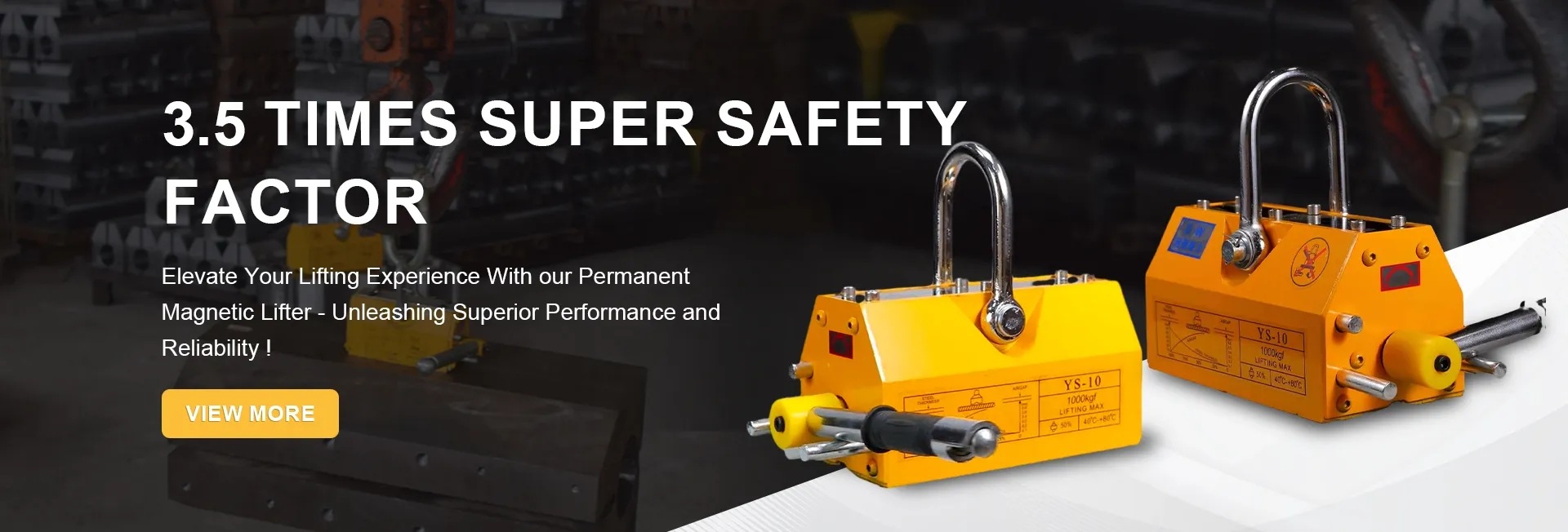Magnetic Hoists for Efficient Lifting Solutions in Various Industries and Applications
The Advantages and Applications of Magnetic Hoist Lifts
In the realm of industrial lifting solutions, magnetic hoist lifts have emerged as a groundbreaking innovation that offers a wide variety of advantages over traditional lifting methods. Combining the principles of magnetism with advanced engineering, these hoists provide effective and efficient means for handling ferromagnetic materials. This article delves into the various benefits, applications, and considerations associated with magnetic hoist lifts.
What is a Magnetic Hoist Lift?
A magnetic hoist lift is a device that utilizes powerful electromagnets or permanent magnets to securely grip and lift metallic objects. Unlike traditional hoists that rely on hooks, shackles, or slings to handle cargo, magnetic hoists secure items using magnetic force. This technology is particularly beneficial for industries that deal with heavy metal parts, scrap metal, or any ferromagnetic materials.
Advantages of Magnetic Hoist Lifts
1. Improved Efficiency Magnetic hoists can significantly reduce the time taken to move heavy loads. The ease of attaching and detaching loads eliminates the need for complex rigging procedures, allowing for quicker operations.
2. Reduced Physical Strain Workers often face physical strain and hazards when lifting heavy materials. Magnetic hoists mitigate these risks by reducing the amount of manual handling required, making the workplace safer and more ergonomic.
3. Increased Safety A magnetic lift is less likely to drop loads compared to traditional lifting methods, which can fail if slings break or hooks become unfastened. The magnetic grip ensures a stable hold during the lifting process, decreasing the likelihood of accidents and injuries.
4. Versatile Applications Magnetic hoist lifts are incredibly versatile and can be used in various industries, including manufacturing, construction, recycling, and metalworking. They are ideal for lifting sheets of metal, machine parts, and even large structures during assembly or maintenance.
5. Compact Design Many magnetic hoists are designed to be compact, making them easy to store and transport. This space efficiency makes them suitable for facilities with limited room.
6. Remote Operation Many modern magnetic hoist lifts can be operated remotely, enhancing their usability and safety. Operators can control the lift from a distance, reducing the risk of injury in heavy lifting operations.
Applications of Magnetic Hoist Lifts
Magnetic hoist lifts are utilized in a plethora of applications across various industries
magnetic hoist lift

- Manufacturing In manufacturing facilities, magnetic hoists are employed to lift and move heavy steel components, molds, and tools. They streamline production processes by enabling quick transitions between different manufacturing stages.
- Construction In the construction sector, magnetic hoists assist in the lifting of steel beams and plates. Their ability to hold large pieces securely allows for more precise placements and reduces the time needed for lifting operations.
- Recycling Facilities The recycling industry frequently deals with scrap metal. Magnetic hoists are essential for efficiently sorting and moving metallic waste, enhancing the overall productivity of recycling operations.
- Shipbuilding In shipbuilding and maintenance, magnetic hoists are used to lift heavy machinery and equipment, ensuring that tasks are completed safely and efficiently.
- Automotive Industry In automotive manufacturing and repair, these hoists facilitate the movement of heavy car parts during assembly and servicing.
Considerations When Using Magnetic Hoist Lifts
Despite their advantages, there are several considerations to keep in mind when incorporating magnetic hoists into lifting operations
1. Material Compatibility Magnetic hoists work exclusively with ferromagnetic materials. Non-ferrous metals and other materials are unsuitable for this type of lifting solution.
2. Power Supply Electromagnetic hoists require a reliable power source to function. Ensuring that the power supply is consistent and adequate is critical for their operation.
3. Surface Conditions The condition of the surface of the material being lifted affects the performance of magnetic hoists. A clean and smooth surface is essential for maintaining a strong grip.
4. Training Operators should receive proper training to safely use magnetic hoists, including understanding load limits and correct operating procedures.
In conclusion, magnetic hoist lifts represent a significant advancement in lifting technology, providing unparalleled efficiency, safety, and versatility across various industries. As businesses continually seek ways to enhance productivity while ensuring worker safety, the adoption of magnetic hoists will likely increase, solidifying their place in modern industrial operations.
-
Unlock Seamless Relocation with Our Heavy Equipment Moving ExpertiseNewsJun.06,2025
-
Unleash Unrivaled Flexibility with Our Adjustable Gantry CraneNewsJun.06,2025
-
Unleash Heavy-Duty Efficiency with Our Industrial Gantry Crane SolutionsNewsJun.06,2025
-
Revolutionize Steel Handling with Our Magnetic Lifter RangeNewsJun.06,2025
-
Master Equipment Mobility with Premium Machinery Mover SolutionsNewsJun.06,2025
-
Elevate Your Material Handling with Magnetic Lifter TechnologyNewsJun.06,2025
-
YS Permanent Lifting Magnets: The Smarter Way to Handle SteelNewsMay.22,2025
